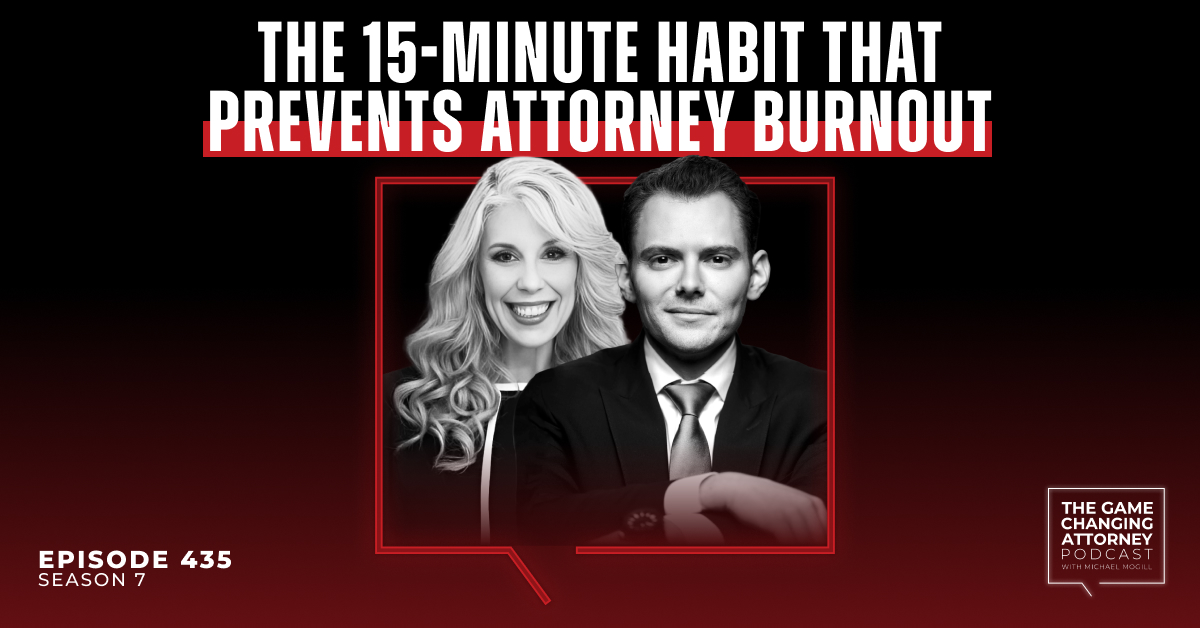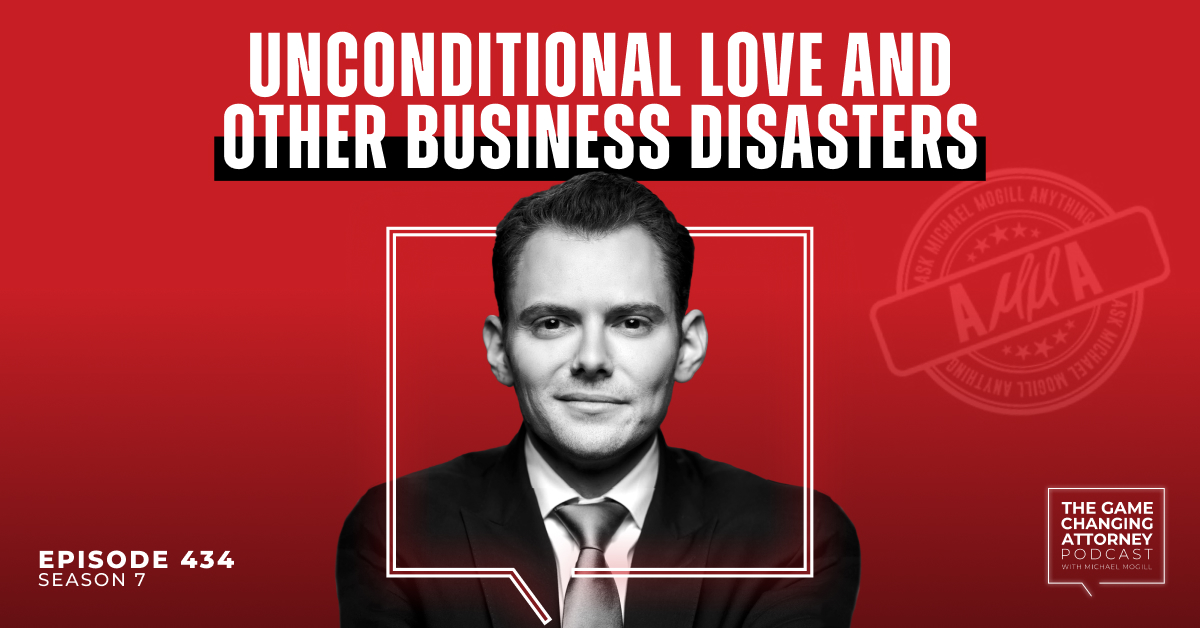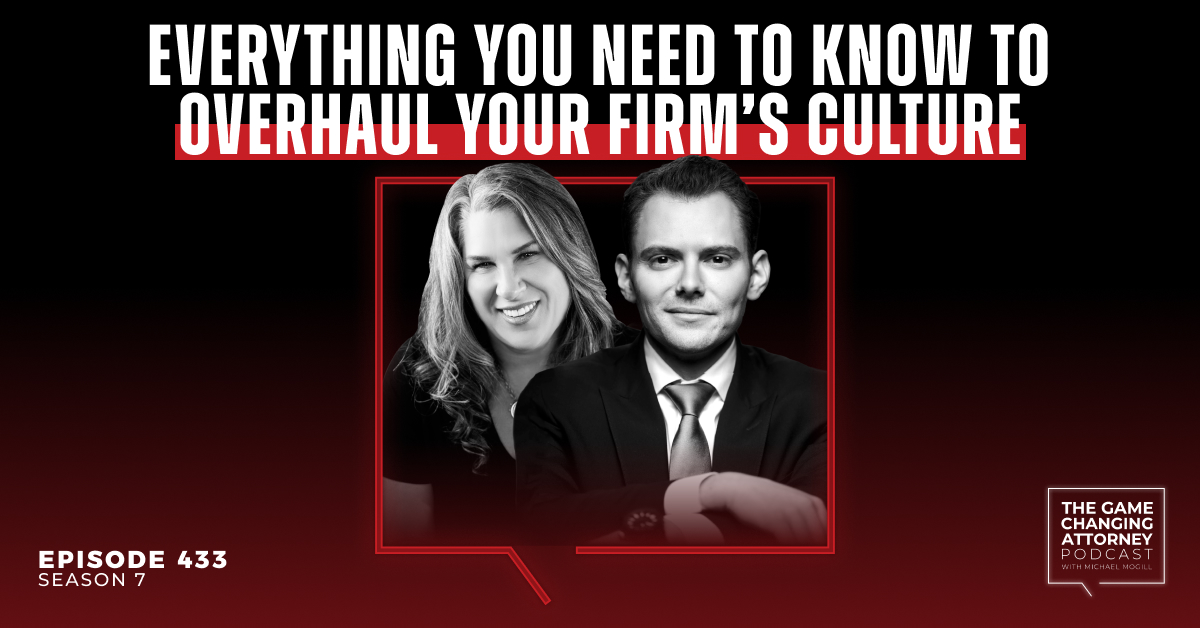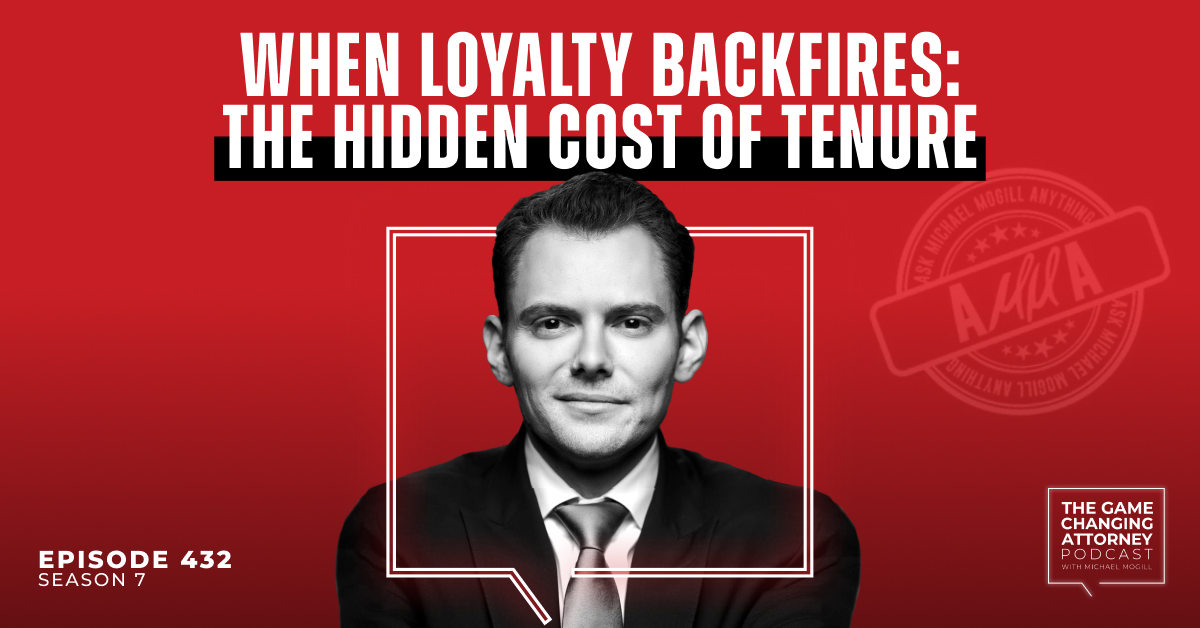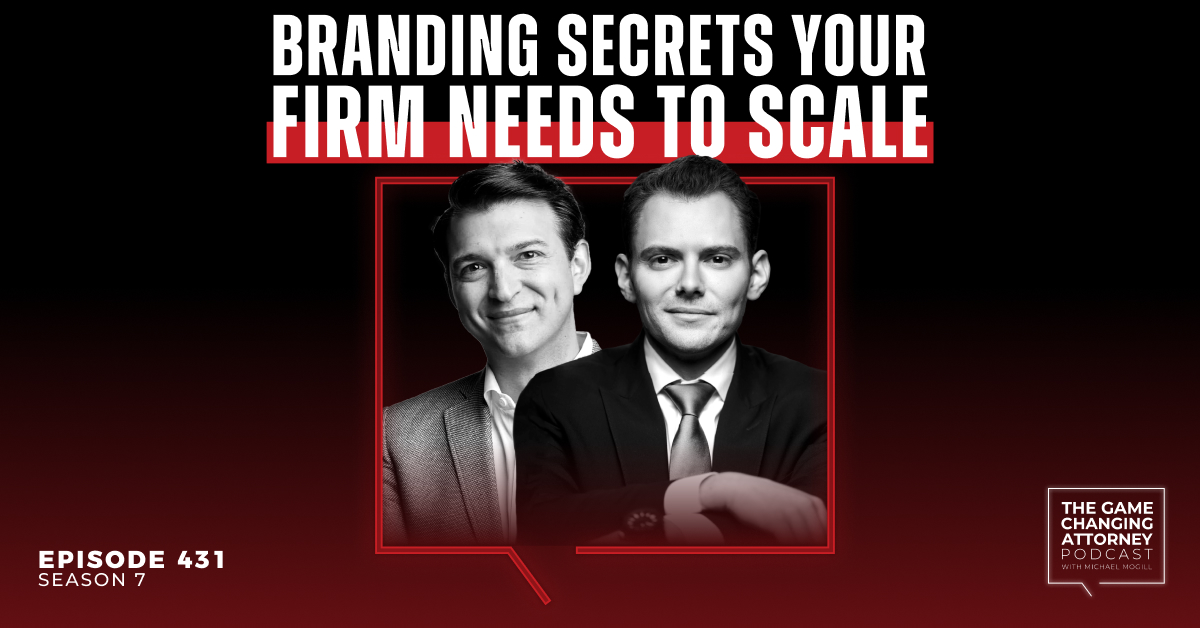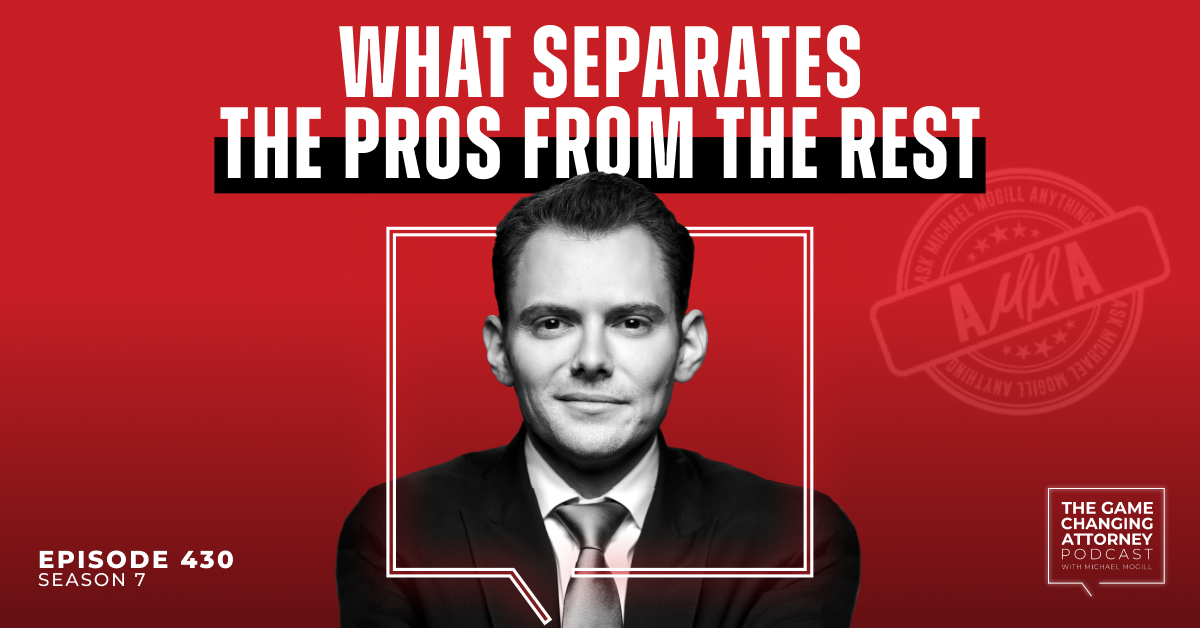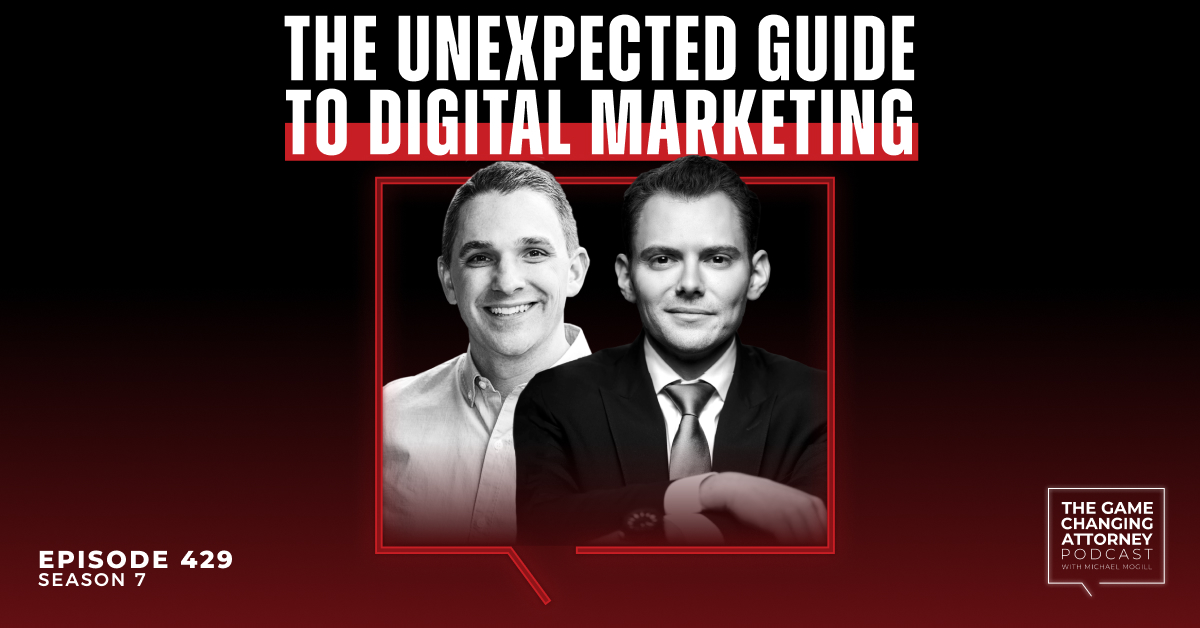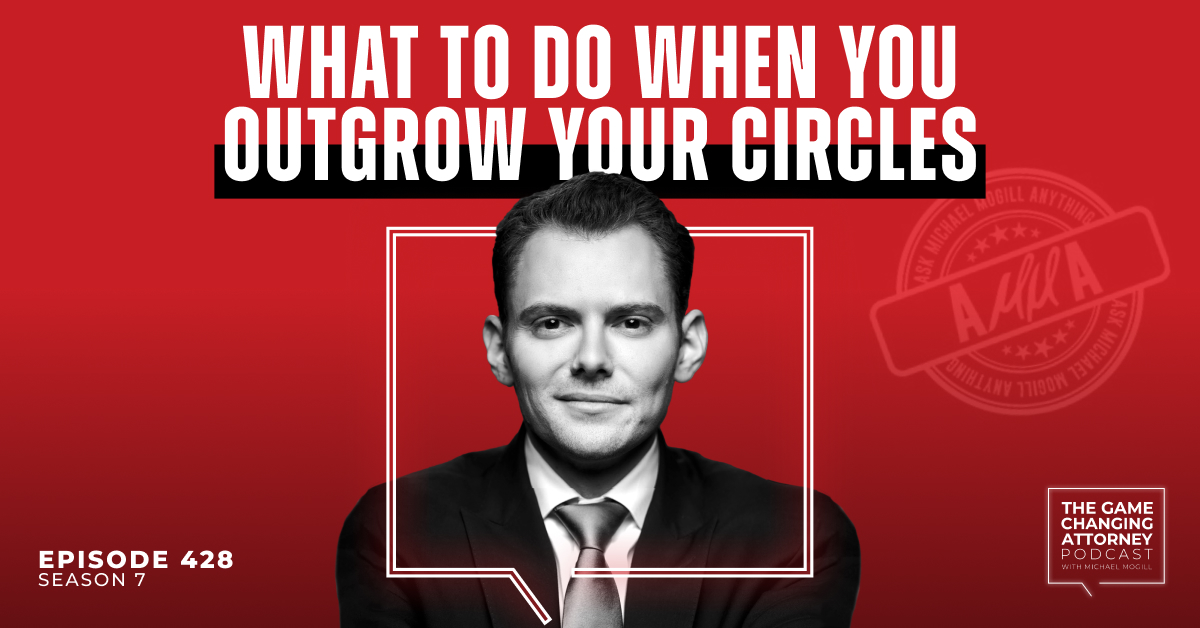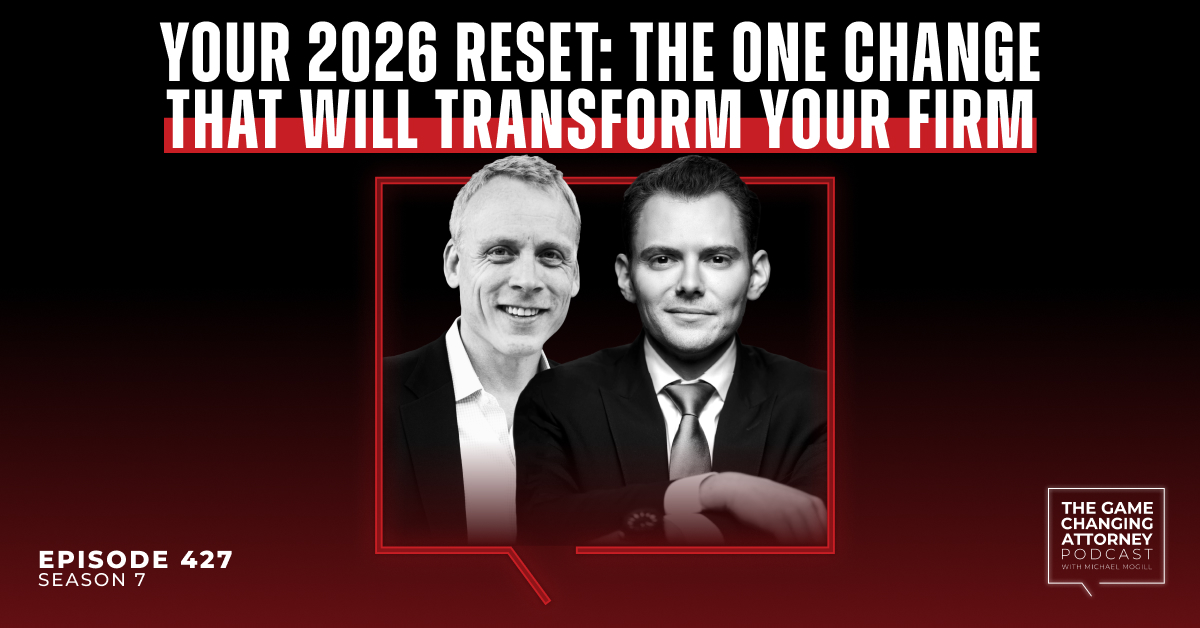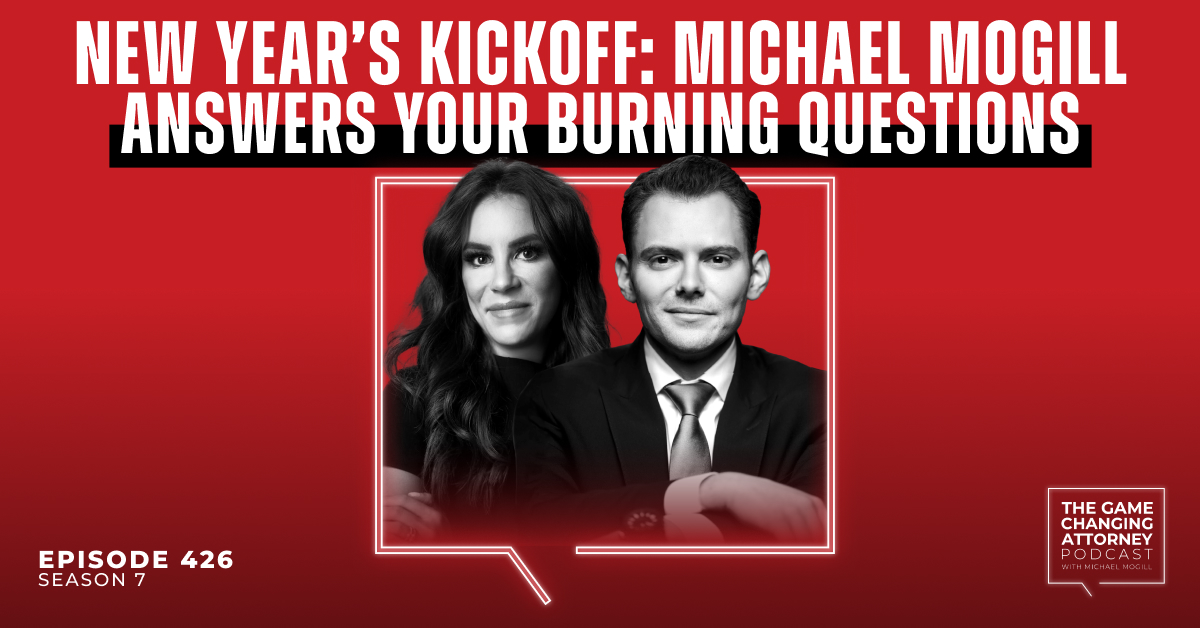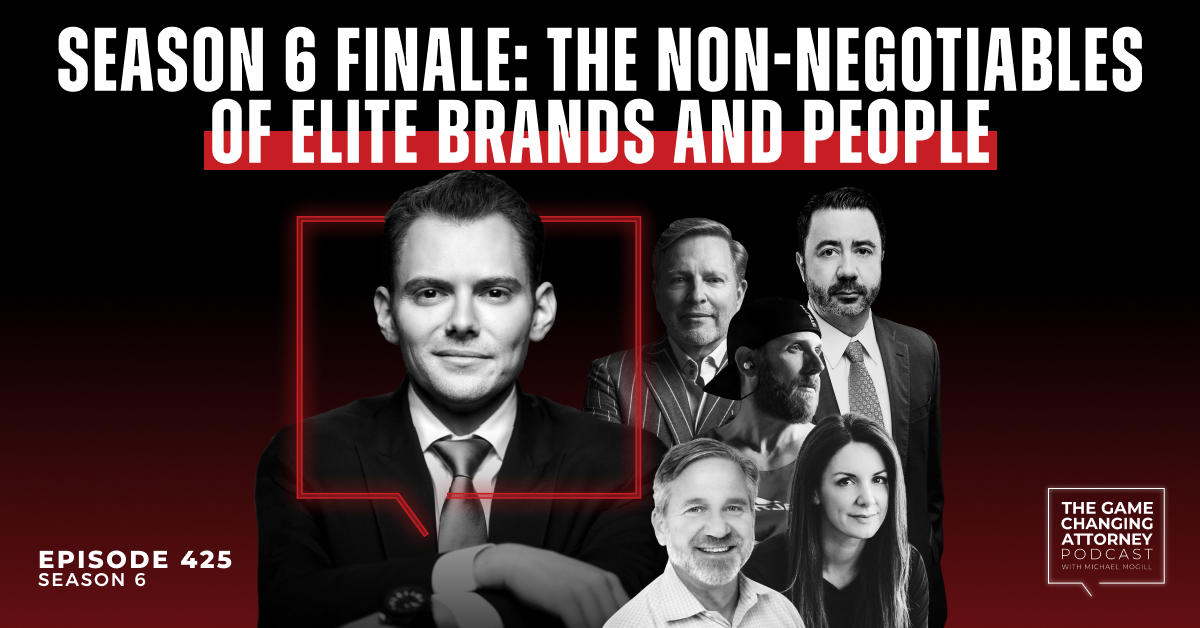
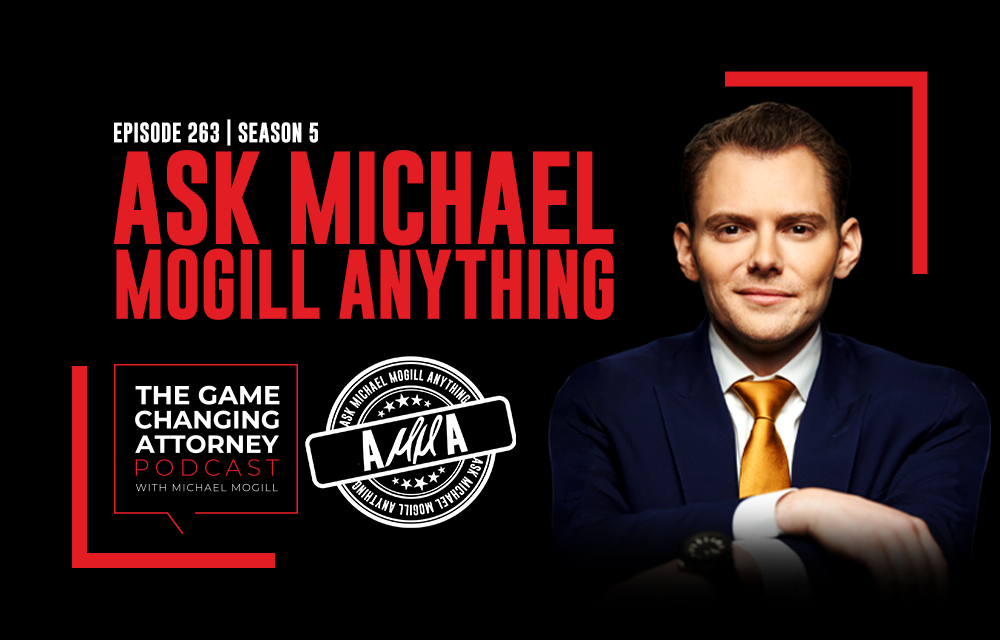
Episode 263 — AMMA — What Growth Demands of Leaders
Leadership transcends individual contributions. It’s about deliberate influence and driving results through others.
How can leaders effectively balance empowering teams with upholding high standards?
In this episode of The Game Changing Attorney Podcast, Michael and Jessica Mogill discuss:
- Strategies to empower middle managers for delegation and growth
- The role of termination in defining your law firm’s culture
- Why successful organizations operate as cohesive teams rather than individual entities

Listen & Subscribe
Show Notes:
Titles don’t make leaders. “I sometimes wonder what people think leadership is. I see some people in certain roles and they say, ‘Well, I get a lot of things done. I’m really effective. I started off as an individual contributor, and now I want the manager title or the VP title.’ They think that they get that title or they get that accountability simply because they’ve either been there a long time or they got really good at what they’re doing. That’s not really what leadership is. Leadership is about intentional influence. It’s about your ability to drive results through other people. If everybody that you would hire in non-leadership roles just got everything done and did everything that they were supposed to do, then you wouldn’t need leaders. So what is the purpose of a leader? It is to exercise leverage at its core. It is the ability to jump into a team where the performance is at a certain level and — through your influence — that performance goes up. That is effective leadership.”
Delegate to grow. “In order to advance as a leader or a manager, you need to be able to gain the skill of delegating effectively, and you can only do that if you’re setting up others for success. If leaders are constantly putting themselves in a role where they’re worried and think, ‘You’re not going to need me for this,’ some will look at that and say, ‘Well, if they’re not going to need me, then they’re just going to let me go.’ Wrong. You’re going to receive more opportunities because more is getting done. If you hold onto everything, you’re the only one who knows how to do something, you think you’re so valuable because all of the processes live in your brain, and you think they can’t let you go because you’re the only one who knows how to do it — they’ll find a way. There are graveyards full of irreplaceable people. Everybody is replaceable. The only thing you’re doing is you’re limiting your own trajectory because you’re holding onto things, and they’re not going to give you more because they’re just going to keep you right where you are.”
Team first. “Business is a team sport. If someone cannot collaborate and work well with other people, remove them from your business. We’ve had people that have been incredible performers — putting up Michael Jordan numbers, putting up Kobe [Bryant] numbers, putting up Wayne Gretzky numbers — and yet they could not work well with others. They could not collaborate. The single best decision we ever made was parting ways with them, and guess what happened? The culture improved. The team aligned. The organization is more than the sum of its individual parts. Consider it from the perspective of the organization’s growth and scale. Let’s say you have two people: one great performer and one poor performer. They can’t work together, kind of like one plus one at the current state doesn’t equal three. On the other hand, let’s say you’ve got 30 people and of those 30, one person is just a terrible culture fit that brings down the organization. They’re inefficient. They create a lot of emotional waste. They create drama or cause a lot of setbacks. No matter how good their individual performance is over time, that’s not going to outweigh the negative impact they’re making in the organization. Let those people go.”
Growth is change. “Say you have a team member who’s been with you a long time. They’ve been a great performer, but since you’ve raised the standard, now what was great is no longer the same. You’ve leveled up, and they have not leveled up. This is not uncommon as a part of a growing organization. What the challenge that I see is most organizations keep these people around, and as a result the organization is never able to truly level up. Growth is change and change is growth. It’s that way with any business or any law firm. Over the years, you’re going to evolve. How you started on day one is going to be very different than perhaps what the firm looks like now and perhaps what the firm will look like 10 years from now. Hopefully you’re learning things and hopefully you’re evolving and improving, but not everybody evolves and improves. I think it should be an aim of every organization to have a culture of growth and a culture of learning and evolution. One of our core values is ‘Better Than Yesterday.’ We should always be learning. Your learning didn’t stop in college or it didn’t stop in law school and it didn’t stop in grad school. That’d be silly. Things change all the time. We should constantly be learning and improving and developing as leaders, too.”
Better than yesterday. “The thing I love about the NFL is that it’s like the ultimate meritocracy. It doesn’t matter how much they’re paying you, what your last contract was, what school you came out of, whether you’ve won a Heisman, or when you’re getting into training camp. Your value is purely based on your skill and your ability to help that team win. It doesn’t matter who you were 10 years ago, five years ago, or even a season ago. When they say the NFL is a business, why don’t we treat our businesses like businesses? So many of you are running organizations like a family rather than a professional sports team. I’ll tell you, everybody says they want to have a high-performing team and they want to be able to hit these goals and these targets and make this great impact, but then they’re unwilling to make the decisions necessary to lead a high-performing team, which is setting a standard and reinforcing the standard. Guess what? High performers absolutely love that. They love going for championships where they can play at a high level and do great work. That’s mentally challenging for them, it’s stimulating, and it’s engaging. They’re taking on very challenging cases every year. The firm is growing and evolving and creates new opportunities for them. That’s exciting for a high performer, but it makes a low performer very uncomfortable.”
RESOURCES & REFERENCES
LASIK eye surgery
David Goggins
John Maxwell
Mark Lanier
Michael Jordan
Kobe Bryant
Wayne Gretzky
Netflix
No Rules Rules by Reed Hastings
Cy Wakeman
NFL
The Heisman Trophy
iPad
Connect with Michael
- Text directly at 404-531-7691

